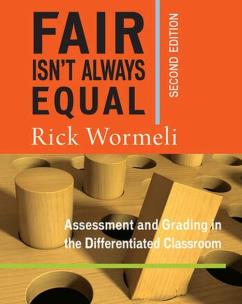- Regulamin
- Koszty dostawy
- Kontakt
- Dziś w ofercie 235 114 produkty
KSIĄŻKI
- Albumy
- Beletrystyka
- Biografie
- Dla dzieci i młodzieży
- Edukacja
- Ekonomia i biznes
- Ezoteryka
- Historia
- Informatyka
- Kalendarze
- Komiksy
- Kryminał i sensacja
- Kultura i sztuka
- Literatura faktu
- Literatura kobieca
- Literatura piękna
- Medycyna
- Nauka języków obcych
- Nauki humanistyczne
- Nauki przyrodnicze
- Nauki ścisłe
- Podręczniki
- Poradniki
- Prawo i administracja
- Przewodniki i podróże
- Psychologia
- Religia
- Sport
- Technika
- Zdrowie i uroda
ZABAWKI
- Artykuły dla niemowląt
- Bączki
- Bujaki i skoczki
- Ciągnij / pchaj
- Dla niemowlaka
- Grzechotki i gryzaki
- Karuzele i pozytywki
- Maty i centra zabaw
- Projektory i lampki
- Sortery i piramidki
- Zabawki
- Edukacyjne i kreatywne
- Figurki
- Klocki
- Lalki
- Pojazdy
- Pluszaki i maskotki
- Sport i rekreacja
- Zabawa w dom
- Zabawki drewniane
- Puzzle
- Do 200 elementów
- 201-500 elementów
- 501-1000 elementów
- Ponad 1000 elementów
- Puzzle 3D
ART. PAP
- Artykuły biurowe
- Artykuły piśmiennicze
- Bloczki i kartki samoprzylepne
- Dziurkacze
- Kalkulatory
- Nożyczki i nożyki
- Skoroszyty
- Teczki
- Wizytowniki
- Zszywacze
- Artykuły szkolne
- Akcesoria szkolne
- Modelowanie
- Notatniki i zeszyty
- Piórniki
- Plecaki i torby
- Pojemniki na śniadanie
- Pomoce naukowe
- Przybory matematyczne
- Przybory rysunkowe
- Upominki i gadżety
- Akcesoria do książek
- Artykuły balowe
- Breloki i zawieszki
- Drobiazgi, różności
- Kubki
- Oferta Świąteczna
- Papeteria, kartki i naklejki
- Skarpetki Many Mornings
- Upominki
GRY
MULTIMEDIA
- Audiobooki
- Beletrystyka
- Biografie i wspomnienia
- Dla dzieci i młodzieży
- Fantastyka
- Filozofia i religia
- Historia
- Literatura faktu i reportaż
- Poradniki
- Sensacja i kryminał
- Filmy DVD/BD
- Animowane
- Biograficzne
- Fantasy
- Horrory
- Komedie
- Romanse
- Science Fiction
- Sensacyjne / kino akcji
- Thrillery
- Muzyka CD
- Alternatywna
- Blues
- Dla dzieci
- Jazz
- Klasyczna
- Piosenka aktorska i poetycka
- Pop
- Rock
- Świąteczna i kolędy
- Akcesoria GSM
- Głośniki
- Kable i adaptery
- Klawiatury
- Myszy
- Słuchawki
PROMOCJE
ZDROWIE
LEGO

Fair Isn't Always Equal
Autor: Wormeli Rick
Wydawca:
Routledge
ISBN:
9781625310170
EAN:
9781625310170
oprawa:
Miękka
format:
20.0x25.5cm
język:
angielski
liczba stron:
308
rok wydania:
2018
(0) Sprawdź recenzje
Opis produktu
Zasady bezpieczeństwa
Differentiated instruction is a nice idea, but what happens when it comes to assessing and grading students? How can you capture student progress, growth, and soft skill development and still provide an equitable grading environment?' An internationally recognized expert on grading practices, author Rick Wormeli revisits these questions in this thoroughly updated second edition of Fair Isn't Always Equal: Assessment and Grading in the Differentiated Classroom.' Wormeli reflects on current grading and assessment practices and how they can exist with high-stakes, accountable classrooms. Important and sometimes controversial issues are tackled constructively in this book, incorporating modern pedagogy and addressing the challenges of teaching diverse groups of students across all learning levels.' Middle- and high-school educators will easily recognize' gray areas of grading and how important it is to have a shared school vision. In this second edition, new sections address sports eligibility, honor roll, descriptive feedback techniques, and gifted/talented students.' Previous chapters on test questions, redos/retakes, grading scales, and grading effort and behavior have been revised extensively. This important book clearly explains the principles behind best grading practices so that you' re ready for all grading questions or scenarios that you may encounter in your classrooms and schools.
CENA:
140,43
zł
Cena detaliczna:
176,00 zł
20%
rabatu
Najniższa cena z ostatnich 30 dni: 140,78 zł
Produkt niedostępny
Uwaga!!!
Ten produkt jest zapowiedzią. Realizacja Twojego zamówienia ulegnie przez to wydłużeniu do czasu premiery tej pozycji. Czy chcesz dodać ten produkt do koszyka?


Wybierz wariant produktu
